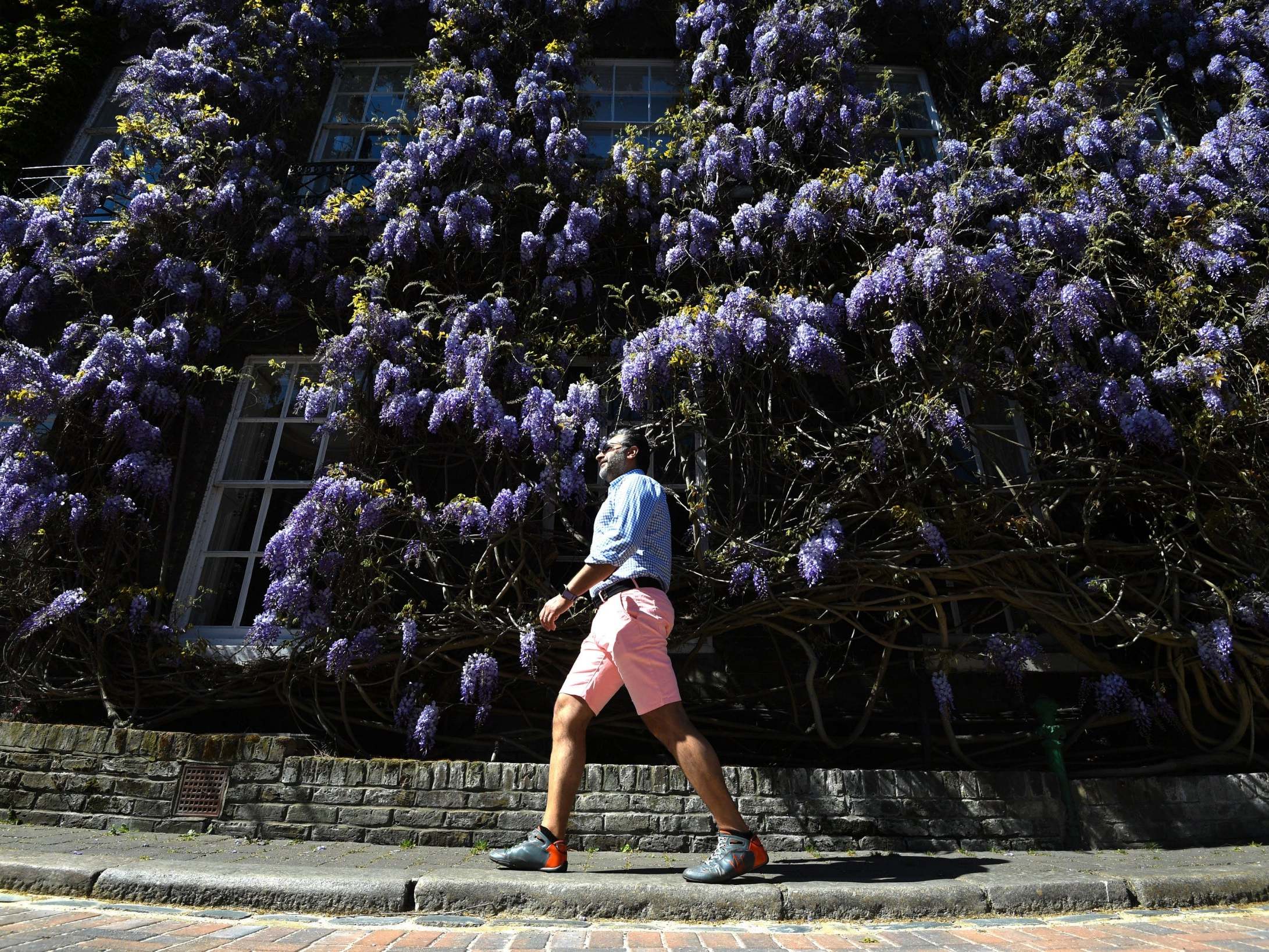This website uses cookies so that we can provide you with the best user experience possible. Cookie information is stored in your browser and performs functions such as recognising you when you return to our website and helping our team to understand which sections of the website you find most interesting and useful.

Reductions in air pollution caused by the UK’s coronavirus lockdown could lead to warmer weather across the country, experts have said.
The UK has seen significant decreases in air pollution in recent weeks due to transport use plummeting as the public has followed government guidance to stay at home to slow the spread of Covid-19.
According to analysis by experts at the University of York, air pollution levels have dropped by more than 40 per cent in a number of UK cities during the lockdown.
Professor Francis Pope, an expert of atmospheric science at the University of Birmingham, told The Independent that reductions in the level of some pollutants could lead to warmer temperatures in the short term.
Pollutants such as carbon dioxide which have a warming effect tend to reside in the atmosphere for a long time so the UK would need to see a long-term reduction in such pollutants for there to be an effect on the country's weather.
Meanwhile, other “shorter-lived pollutants”, which can make the atmosphere cooler, stay in the atmosphere for a much shorter period and could have a much quicker effect.
“Shorter-lived pollutants, such as particulate matter (for example sulphate particles), can have a cooling effect on our atmosphere,” Professor Pope said.
“Since these pollutants only stay airborne for days to weeks, their removal will cause a much more rapid response to the amount of sunlight that gets to the surface of Earth and hence can lead to localised warming."
He added: “Particulate matter air pollution is masking some of the effects of climate change, so its removal could lead to warming.”
However, if there is a long-term reduction in air pollution from the coronavirus pandemic, there would ultimately be a slowing down in the process of global warming.
“If the Covid crisis leads to profound reductions in consumption (industrial output) and travel and encourages other less polluting behaviour, as some people are predicting, we would see a slow down in global warming,” Professor Pope said, noting this process would take at least a couple of years to take effect.
A spokesperson from the Met Office agreed that reductions in air pollution could lead to higher temperatures.
“Particles in the atmosphere, known as aerosols, can influence the amount of sunlight reaching the ground,” the spokesperson said.
“Aerosols can either be natural (e.g. dust, salt from the ocean), while others are produced from anthropogenic sources (e.g. soot, particulate air pollutants).
“A reduction in aerosols can increase the amount of sunlight reaching the ground and potentially raise temperature.”
Although it may be too early to attribute recent warm weather in the UK to decreases in air pollution, lower levels of pollutants are likely to continue over the coming months as some social distancing measures remain in place.
Professor Chris Whitty, England’s chief medical officer, said on Wednesday that some social restrictions would need to remain until a vaccine or effective drugs to treat the coronavirus are found.
There are also health benefits to reducing air pollution levels, as the World Health Organisation (WHO) has estimated about seven million people die every year from exposure to fine particles in polluted air.
Preliminary analysis from the University of York’s research on the lockdown’s effect on UK pollution showed levels of the pollutant nitrogen dioxide (NO2) have been significantly reduced in the past few weeks, while there has been less impact on PM2.5 pollution levels.
Levels of nitrogen dioxide were down as much as 48 per cent in Leeds, compared with the five-year average for the time of year, while Newcastle and Cardiff have recorded drops of about 45 per cent and Glasgow has seen levels fall by 44 per cent.
A lower decrease was also recorded in London, where nitrogen dioxide levels fell by 36 per cent.
Sadiq Khan, the mayor of London, has said the lockdown has “dramatically improved” air quality in the capital and called for the government’s recovery plan for the pandemic to work towards permanently eradicating air pollution.
“This cleaner air should not just be temporary as Londoners deserve clean air at all times,” Mr Khan said.
“So, once the current emergency has passed and we start to recover, our challenge will be to eradicate air pollution permanently and ensure the gains we've made through policies such as ULEZ (ultra-low emissions zone) continue."
Additional reporting by PA



 Africana55 Radio
Africana55 Radio 

